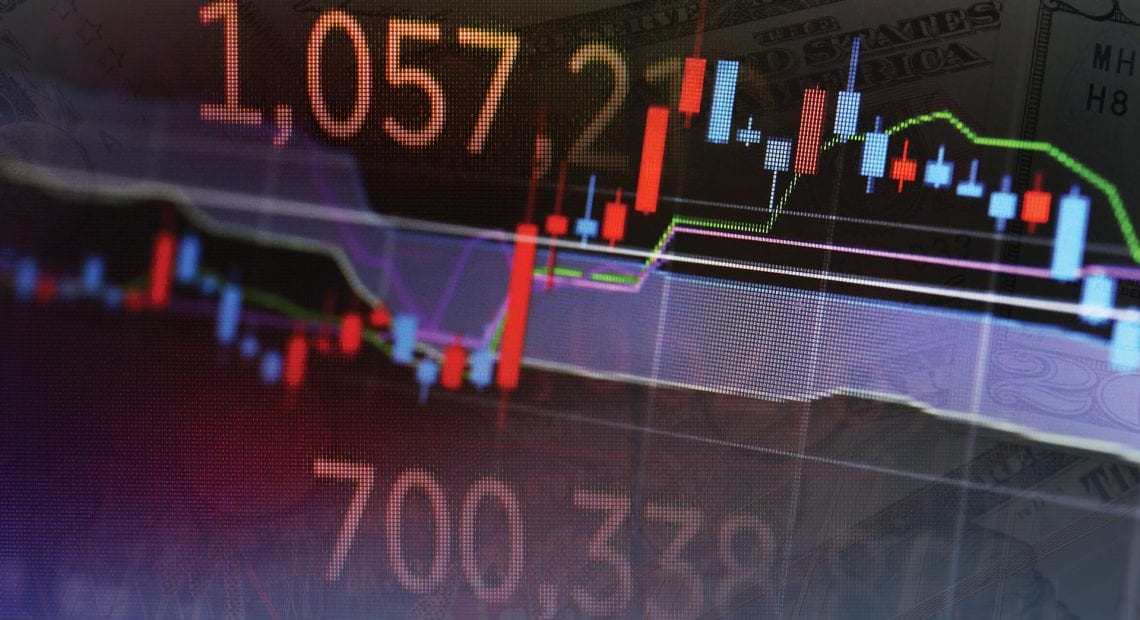
Wall Street’s Performance Doesn’t Match Main Street
A Seeming Disconnect
By Jean M. Deliso
Have you wondered how the S&P 500 stock-market index has been trading at near all-time highs when, in the second quarter, S&P 500 corporate earnings were down compared to the first quarter of 2020, daily confirmed cases of COVID-19 in the U.S. are currently stable or declining, and the Bureau of Labor Statistics’ July unemployment report showed more than 16 million unemployed Americans, with an unemployment rate of 10.2%?
That question is a good one, with the seeming disconnect between what the stock market has been doing and what we are seeing in the news and the U.S. economy. No doubt the stock market was arguably pricing in what the economy will look like a year from now and what the market sees as significant pent-up demand, a fading pandemic-induced economic impact, and a wall of liquidity coursing its way through capital markets.
The real question is whether investors should be concerned about the U.S. stock market hitting all-time highs with the economy still bruised and slowly recovering. Could this mean a crash or major correction is coming?
Jean Deliso
“There is a chance the economy one year from now will be in better shape than it is today — or it may be worse. But being a participant in the market for the long haul means participating in the growth and losses that happen between now and then, and always focusing on your investment time horizon.”
No one truly knows the answer to that question. But we know that market corrections and bear markets are normal and common; we just don’t know when they will arrive or how long they will last. And if anyone tells you ‘with certainty’ when a market downside is coming and how long it will last, you might want to run the other way.
When thinking about where the markets and economy could go in the next year and beyond, it’s useful to break it down by key categories:
• Economics. The pandemic-induced recession has been steep and ugly. But there is a good argument that the worst of the crisis could be behind us. Manufacturing and service activity have rebounded, the housing market has seen very solid activity, and spending has outpaced expectations, according to the Washington Post.
• Earnings. Second-quarter earnings were bad, plain and simple. But at the same time, earnings were not as bad as the double-digit expectation of Wall Street, and clearly stocks love positive surprises. Will earnings continue to improve going forward? That is the question — and we all hope the answer is ‘yes.’
• Interest Rates. Overnight rates in most developed countries are near historic lows, meaning borrowing costs and financing costs are highly attractive for businesses and individuals that can obtain loans. The Federal Reserve also signaled plans to keep interest rates near zero for years; these actions make equities attractive by comparison.
• Inflation. The amount of global stimulus is massive; the total global fiscal and monetary stimulus being deployed amounts to approximately 28% of world GDP, according to the Wall Street Journal. This ‘wall of liquidity’ makes inflation seem more likely in the coming years and will be a factor to watch.
• Sentiment. Consumer and investor sentiment is improving in the wake of the pandemic, but may sour as the election nears.What’s the bottom line for investors? The nature of bull markets is that we can expect the stock market to reach new highs over time. This is what history has told us to expect every time. That said, I would caution against seeing an all-time high in the S&P index as a reason to go completely defensive. When setting a long-term investment strategy, it is important to consider how the economy may grow or contract in the next six, 12, or even 18 months, and how that plays into your personal goals and objectives. If your retirement date is close, it is always prudent to review how much safe money you may need to weather an unexpected storm.
There is a chance the economy one year from now will be in better shape than it is today — or it may be worse. But being a participant in the market for the long haul means participating in the growth and losses that happen between now and then, and always focusing on your investment time horizon.
Jean M. Deliso is a registered representative offering securities through NYLIFE Securities, LLC (member FINRA/SIPC), a licensed insurance agency. Deliso Financial and Insurance Services is not owned or operated by Eagle Strategies, NYLIFE Securities, LLC, or any of their affiliates.






